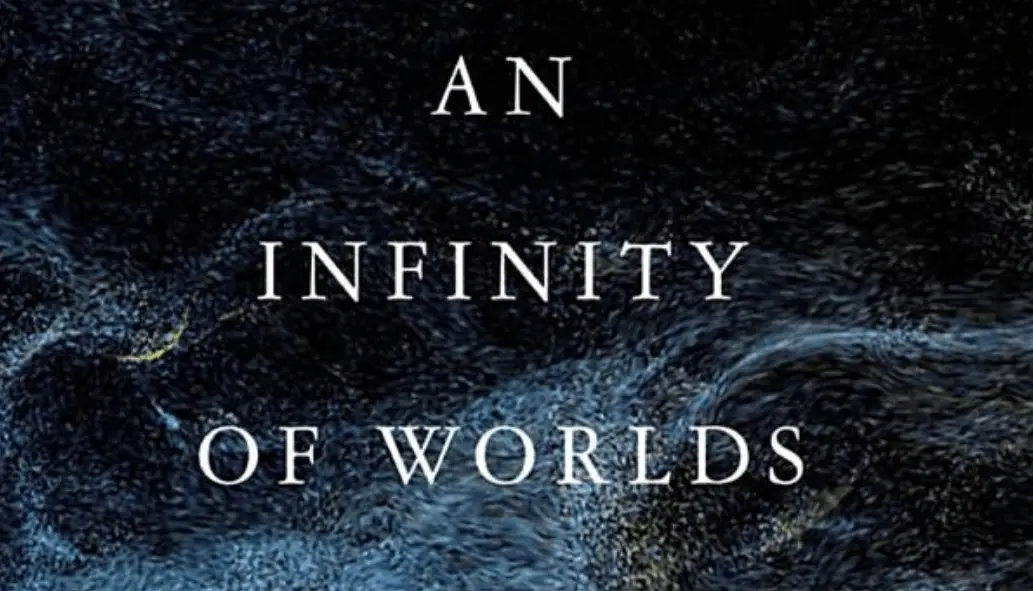Physicist Will Kinney’s An Infinity of Worlds: Cosmic Inflation and the Beginning of the Universe starts with the background needed to understand what’s called the Lambda Cold Dark Matter (ΛCDM) model of cosmology, often thought of as the “standard” model of Big Bang cosmology because it’s been the most successful at matching current astronomical observations. The “lambda” stands for the cosmological constant, which represents the pressure caused by dark energy, the driver of cosmic inflation.
Kinney goes on to explain that thanks to the ΛCDM and our observations, “Precision cosmology has reached the point where it is not only possible to test broad predictions of inflationary theory but also possible to test specific models for inflation and therefore test the underlying particle physics, at energy scales vastly beyond the reach of terrestrial accelerators.” Infinity of Worlds also details which observations and tests match the ΛCDM model, like primordial density perturbations (aka scalar perturbations). Primordial gravitational waves (aka tensor perturbations), on the other hand, have not yet been observed.
Infinity of Worlds describes a number of different tests — some of them easily achieved, others further off in the future — which can be used to determine the viability of the ΛCDM model. Importantly, the models are predictive, “The simplest predictions, such as near scale invariance, superhorizon correlations, and Gaussian perturbations, have already been confirmed to a high precision … single-field inflation makes predictions that have not yet been tested […] inflation is a well-posed scientific theory in the classic sense of predictivity and falsifiability — in fact with great detail and precision.” Kinney makes a very strong case here.
Chapter 7 of Infinity of Worlds, “Eternal Inflation and the Multiverse,” starts off with a quote from John Milton’s Paradise Lost, and waxes philosophical and historical for the first few pages. This marks a distinct shift in the book’s tone and content, and reveals Kinney’s perspective about cosmology in a larger sense, beyond any particular model. Luckily, he doesn’t shy away from his doggedly detailed explanations, saying that:
… in constructing a picture of the early universe that explains its current observed properties, we find that almost any model results in the prediction that inflation runs out of control forever into the future and there should be an infinite number of universes like our own, embedded in a larger, eternally self-reproducing inflationary space-time.
Importantly, Kinney differentiates the inflationary multiverse from the quantum one.”Despite its quantum mechanical origin, the multiverse generated by eternal inflation is in no way related to the ‘many worlds’ interpretation of quantum mechanics,” he says, and that the “universes here are physically real.”
Infinity of Worlds digs into the fascinating issues that the inflationary multiverse presents, no matter where they lead. Much to his credit, Kinney makes clear that despite its many successes, the ΛCDM model must be incomplete, because it can’t provide explanations for the universe’s homogeneity, flatness, and local structure (all of these are defined very clearly and helpfully in the book). Therefore, even if all of ΛCDM is eventually verified, there will still be important aspects of our universe it simply doesn’t say anything about.
Infinity of Worlds then looks at how ΛCDM bumps up against other modern theories, like string theory. With more than 10500 possible vacuum configurations for our universe provided by string theory, we’d have to assume that the ΛCDM’s multiverse would give rise to real universes in each configuration, an infinite number of times. Things get even more interesting when taking into account recent advances in quantum gravity.
So where does that leave the ΛCDM model? In the final chapter of Infinity of Worlds, Kinney muses about “just so” stories, which explain something in a way that’s unfalsifiable. Kinney explains the three foundational issues with ΛCDM: geodesic incompleteness, no theory of initial conditions, and trans-Planckian perturbations. “All of these uncertainties … are related to our lack of understanding of how to self-consistently construct a quantum theory of gravity,” he says. And thus we are back to quantum gravity and string theory.

But Kinney’s perspective is even broader and more philosophical than this, saying, “Is any theory we construct of the ultimate origin of the universe a just so story, inherently unfalsifiable?” The answer to his own question, “Quite possibly.”
AIPT Science is co-presented by AIPT and the New York City Skeptics.
Join the AIPT Patreon
Want to take our relationship to the next level? Become a patron today to gain access to exclusive perks, such as:
- ❌ Remove all ads on the website
- 💬 Join our Discord community, where we chat about the latest news and releases from everything we cover on AIPT
- 📗 Access to our monthly book club
- 📦 Get a physical trade paperback shipped to you every month
- 💥 And more!













You must be logged in to post a comment.